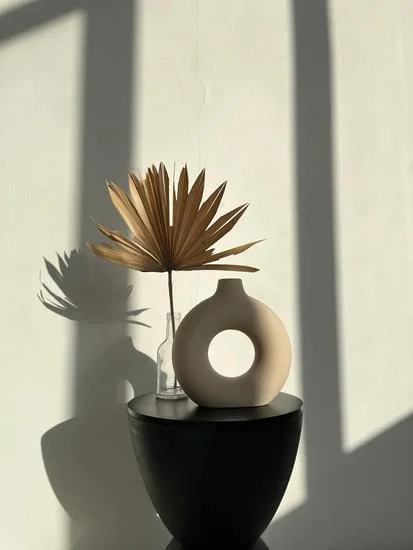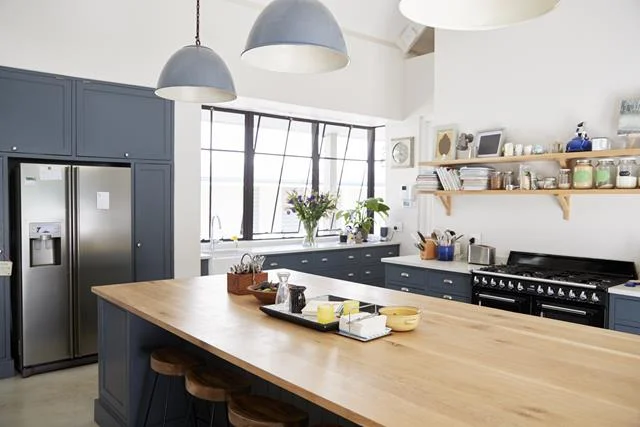Are you interested in learning how to start a home decor line? In this article, we will guide you through the steps of creating your own home decor brand, from market research to legal and financial considerations.
Home decor encompasses a wide range of products, including furniture, textiles, wall art, and accessories. A home decor line is a collection of items designed to complement and enhance the aesthetic of a living space. Whether you have a passion for interior design or a keen eye for style, starting your own home decor line can be a rewarding venture.
Before diving into the details of product development and marketing strategies, it is important to understand the home decor industry and identify your target audience. Creating a unique brand identity and aesthetic for your home decor line will set you apart in the market. With proper research and planning, you can develop high-quality products that stand out and appeal to potential customers.
Market Research
Understanding the home decor industry is crucial when starting a home decor line. Market research allows you to identify trends, gaps in the market, and the preferences of your potential customers. Here are some steps on how to start home decor line by conducting effective market research:
1. Identify Your Niche: Home decor is a broad industry, so it’s essential to narrow down your focus. Do you want to specialize in modern, rustic, bohemian, or minimalist home decor? Understanding your niche will help you target a specific audience and meet their needs.
2. Analyze Competitors: Researching your competitors can provide valuable insights into what sells well in the market, which marketing strategies are effective, and how you can differentiate your brand from others. Look at the products they offer, their pricing strategy, and customer reviews to understand what works and what doesn’t.
3. Understand Your Target Audience: Knowing who your potential customers are is key to the success of your home decor line. Consider factors such as age, income level, lifestyle, and preferences when identifying your target audience. This will help you tailor your products and marketing efforts to appeal to them effectively.
Identifying Market Trends: Keep an eye on current home decor trends to ensure that your products remain relevant in the market. This could involve attending trade shows, reading industry publications, or following influencers in the home decor space on social media platforms.
By understanding the home decor industry and identifying your target audience through thorough market research, you can position yourself for success when starting a home decor line. Conducting extensive research will provide valuable insights that can guide product development, branding, marketing strategies, and sales efforts for your business.
Developing a Unique Brand
- Define Your Brand Identity: Before diving into product development, take the time to clearly define your brand’s mission, values, and unique selling points. Consider what sets your home decor line apart from others in the market. Are you focusing on sustainable materials, modern designs, or traditional craftsmanship? Understanding your brand identity will guide all aspects of your business, from product development to marketing strategies.
- Establish a Cohesive Aesthetic: Your home decor line should have a cohesive aesthetic that reflects your brand’s identity. This could be achieved through consistent color palettes, design elements, or material choices across different product categories. Whether you’re aiming for a minimalist, bohemian, or luxury aesthetic, ensure that all products align with the overall look and feel of your brand.
- Storytelling and Brand Narrative: Consumers are often drawn to brands with compelling stories and narratives. Consider how you can incorporate storytelling into your home decor line to create an emotional connection with potential customers. This could involve sharing the inspiration behind each collection, showcasing the artisans who craft your products, or highlighting the impact of your brand’s commitment to sustainability.
By developing a unique brand with a strong identity and aesthetic, you can effectively differentiate yourself in the competitive home decor industry and attract loyal customers who resonate with your vision.
Product Development
When starting a home decor line, product development is a crucial step in creating items that will appeal to your target audience and stand out in the market. The first thing to consider when developing products for your home decor line is to have a clear understanding of your brand identity and aesthetic.
This will guide you in creating designs that are consistent with the overall look and feel of your brand. Whether it’s modern, minimalist, bohemian, or vintage-inspired, having a distinct style will set your products apart from others in the market.
Once you have established your brand’s aesthetic, it’s time to brainstorm and sketch out design ideas for your home decor items. This can include everything from furniture pieces and decorative accessories to textiles and wall art. Keep in mind the latest trends in home decor while staying true to your unique style. It’s important to strike a balance between being on trend and offering something new and different.
After finalizing your designs, the next step is to focus on producing these items. Whether you choose to manufacture locally or overseas, it’s essential to find reliable suppliers and manufacturers who can bring your vision to life. Consider factors such as quality, cost, and lead times when sourcing materials and production partners for your home decor line. Building strong relationships with suppliers can ensure that you consistently deliver high-quality products to your customers.
| Product Development | Home Decor Items That Stand Out |
|---|---|
| Understanding brand identity | Creating designs consistent with brand aesthetic |
| Brainstorming design ideas | Staying on trend while offering something unique |
| Finding reliable suppliers | Evaluating quality, cost, and lead times for production |
By following these steps for product development in your home decor line, you can create items that resonate with customers and make a lasting impression in the market.
Setting Up Production and Sourcing Materials
When starting a home decor line, finding reliable suppliers and manufacturers for your products is crucial to ensure the quality and consistency of your offerings. Whether you are creating furniture, textiles, or decorative accessories, sourcing materials and production partners can significantly impact the success of your business.
Identifying Suppliers
First and foremost, it’s essential to identify suppliers who can provide the raw materials needed for your home decor products. This may include fabrics, wood, metal components, glass, or any other materials specific to your designs. Researching and reaching out to potential suppliers can help you assess their quality, pricing, lead times, and capacity to meet your production needs.
Choosing Manufacturers
Once you have secured reliable suppliers for your materials, the next step is to find manufacturers capable of producing your home decor items according to your specifications. Consider factors such as production capabilities, craftsmanship, location (domestic or international), ethical practices, and cost efficiency when selecting a manufacturing partner. Visiting potential manufacturing facilities in person can also provide valuable insights into their processes and capabilities.
Quality Control
Maintaining consistent quality across your product line is essential for building trust with customers. Implementing rigorous quality control measures throughout the production process is vital to ensure that every item meets your brand’s standards. Whether it’s inspecting raw materials before production or conducting final inspections before shipping, having robust quality control protocols in place is key to delivering exceptional home decor products.
By carefully selecting suppliers and manufacturers who align with your brand’s values and quality standards, you can establish a strong foundation for your home decor line. Building lasting partnerships with reliable suppliers and manufacturers not only ensures the integrity of your products but also contributes to the long-term success of your business.
Marketing and Sales Strategies
When starting a home decor line, one of the most crucial aspects is to effectively market and promote your products to reach potential customers. With the right marketing and sales strategies in place, you can create awareness about your brand and attract a loyal customer base. Here are some key strategies for promoting your home decor line:
Creating Compelling Branding and Packaging
One of the first steps in marketing your home decor line is to establish a compelling brand identity that resonates with your target audience. This includes creating a unique logo, choosing a distinct color scheme, and developing aesthetically pleasing packaging for your products. Your branding should communicate the essence of your brand and set it apart from competitors.
Utilizing Social Media and Influencer Partnerships
In today’s digital age, social media plays a significant role in promoting products. Utilize platforms such as Instagram, Pinterest, and Facebook to showcase your home decor items and engage with potential customers. Additionally, consider collaborating with influencers or interior design enthusiasts who can help promote your products to their followers.
Participating in Trade Shows and Pop-Up Events
Participating in trade shows, pop-up events, or local markets provides an excellent opportunity to showcase your home decor line in person. This allows you to interact directly with customers, receive feedback on your products, and potentially secure wholesale orders from retailers.
By incorporating these marketing strategies into your business plan, you can effectively promote your home decor line and attract the attention of potential customers. Remember that consistency is key when implementing these strategies, so be prepared to dedicate time and effort into building a strong presence for your brand within the home decor industry.
E-Commerce and Retail
Once you have developed your unique home decor products and established your brand identity, it’s time to explore different avenues to sell your items. E-commerce is a popular option for many home decor businesses as it allows you to reach a global audience without the need for a physical storefront. Creating an online store can be relatively cost-effective and gives you the flexibility to showcase your products in a visually appealing way.
In addition to e-commerce, retail sales can also be a significant avenue for selling home decor products. You may consider partnering with local boutiques, home decor stores, or larger retailers to carry your line. Participating in craft markets, trade shows, and other events can also be effective in reaching customers who prefer an in-person shopping experience.
Selling through both e-commerce and retail channels can help you expand your customer base and increase brand visibility. It’s essential to create a cohesive marketing strategy that encompasses both online and offline sales channels to ensure that potential customers are aware of where they can purchase your home decor products.
| Avenues for Selling | Benefits |
|---|---|
| E-commerce | Reach global audience, cost-effective online storefront |
| Retail Sales | Partnerships with local boutiques and large retailers, craft markets, trade shows |
Legal and Financial Considerations
In conclusion, starting a home decor line can be a rewarding entrepreneurial endeavor for those with a passion for design and interior styling. By understanding the market, creating a unique brand, developing standout products, and implementing effective marketing and sales strategies, you can position your home decor line for success in the industry. It is essential to take into account the legal and financial considerations involved in such a venture, including trademarks, taxes, and business licenses.
One vital aspect of launching a home decor line is protecting your brand through trademarks. This provides legal protection for your logo, brand name, or other distinctive elements of your business. Additionally, understanding the tax implications of running a business is crucial for financial sustainability. This includes keeping accurate records of income and expenses and fulfilling tax obligations to avoid potential legal issues.
Frequently Asked Questions
How Profitable Is Home Decor Business?
The profitability of a home decor business can vary depending on various factors such as market demand, competition, and the effectiveness of your marketing and sales strategies. If you are able to offer unique and high-quality products or services, and effectively target your ideal customers, then it is possible for a home decor business to be quite profitable.

What Do I Need to Start a Home Decor Business?
Starting a home decor business typically requires some key elements such as a solid business plan, sufficient capital for initial investment and operating costs, sourcing reliable suppliers for your products, understanding the legal requirements for running a business in your area, and having a strong sense of design and creativity.
Additionally, having knowledge of marketing and sales strategies can also be beneficial for successfully starting and running a home decor business.
How Do I Start My Own Decorating Business?
To start your own decorating business, it’s important to first research the market to understand the demand for different types of home decor products or services. Then, create a detailed business plan that includes your target market, competitors, pricing strategy, sales and marketing approach, and financial projections.
Once you have everything planned out, you can then work on acquiring any necessary permits or licenses and securing funding if needed. Additionally, networking with potential clients or collaborators can also help in launching your decorating business successfully.

Hello, lovely readers! I’m Sheila Collins, and I’m delighted to be your trusted guide on this exciting journey of home improvement, design, and lifestyle. As the founder and editor-in-chief of Home Guide Blog, I’m passionate about all things related to homes, and I’m here to share my knowledge, experiences, and insights with you.





